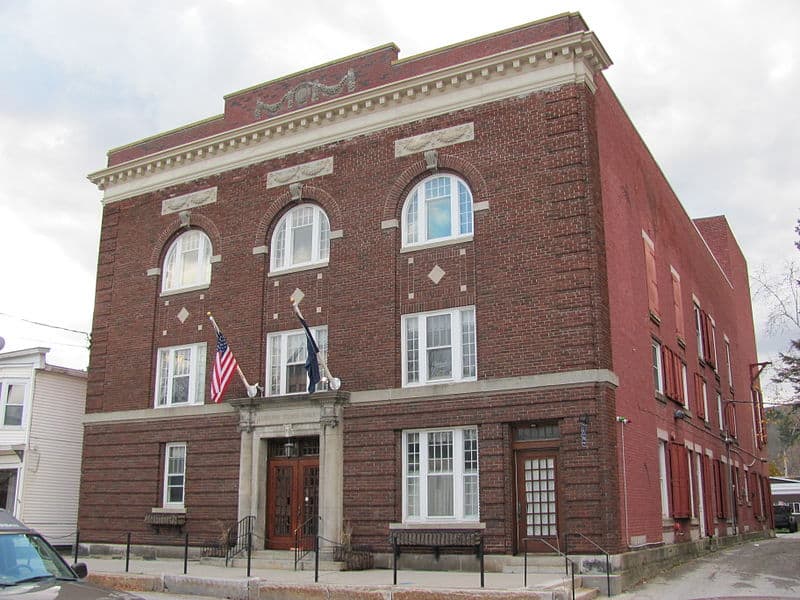LUDLOW, Vt. – The Ludlow Selectboard met on Monday, Aug. 1, returning to their regularly scheduled first Monday after the upheaval of last month.

Updating the board on the continued flood recovery efforts, municipal manager Brendan McNamara explained that, at this point, the town is trying to “look at our infrastructure as a whole,” but that the extent of the damage continued to reveal itself as time progressed.
“It feels like…every time I turn around, something else has gone wrong,” McNamara said, using as an example the retaining wall in the Black River beneath the senior center and Black River Academy Museum. “The bottom half of it is now gone,” McNamara told the board, saying the damage had been noticed on Friday, Aug. 4, and that engineers were scheduled to asses the damage in the coming days.
McNamara also said that, through the “unbelievable” efforts of various crews, Ludlow’s wastewater treatment plant was running at a “summer capacity,” though there was much more work to be done before it would be able to handle the full capacity required for the winter tourist season. McNamara also suggested that, during the rebuilding process, the board and others involved with reconstruction projects would need to think creatively in order to prevent such catastrophic damage from occurring during inevitable future floods.
The selectboard also addressed several other issues, including increasing the stipend for members of the planning commission. Prior to Monday’s meeting, members of the Ludlow Planning Commission were paid $25 per meeting, amounting to $300 per year, with deductions for missing meetings. Selelctobard member Scott Baitz noted that the developmental review board (DRB) was also relatively underpaid at $1,200 per year, and that these amounts had not, he believed, changed in 25 years, and were “ridiculously low.” Baitz introduced a motion to raise the stipend for the planning commission to $900 per year, and the DRB to $2,000 per year. The motion passed. Ludlow resident Eric Alden added that both boards should also be supplied with town-owned laptops for the work that they do, in order to protect board members from the potential for their personal information to be exposed, and enable any FOIA requests, subpoenas, etc., to be complied with easily. The board agreed, and McNamamra pledged to investigate purchasing equipment for these boards.
The board also heard an update from Gary Blodgett of the Expeditionary School at Black River (ESBR). Blodgett told the board that the ESBR had been approved by the State of Vermont as an independent school on June 29, allowing them to accept state tuition from school choice towns for students attending ESBR. Blodgett indicated that this would allow the school to grow, though because of the late date of approval, some students and staff who were at the school for the previous school year had made the decision to go elsewhere prior to approval, due to the uncertainty of the school’s future at the time. However, the state approval allows for the stability to ensure that the school will remain operational from year to year. Currently, ESBR has 10 students.
McNamara also sought and was granted consensus from the selectboard to begin discussions regarding the merger of the Town and Village of Ludlow. “Some of the things we run up against with the separation of town and village, at a point, are comical,” McNamara said, “and…it just doesn’t make any sense.” He used as an example the paving of the Okemo access road, for which a grant had been awarded to the town, but not the village. This meant that the paving had to stop at the trestle, below which the road is the village’s responsibility, and necessitated procurement of a second grant, a seam in the road paving, and getting contractors and equipment out to the road a second time.
Alden again addressed the board, noting that many Vermont villages were incorporated during industrialization in the late 19th and very early 20th centuries, and that nearly two-thirds of them have subsequently unincorporated in the time since, as municipal services such as fire departments expanded their coverage to entire towns, rather than just their populated village centers. “You have 50 examples of villages that have unincorporated to look at,” Alden noted, “so it shouldn’t be difficult.”
The Ludlow Selectboard set its next meeting for Labor Day, Monday, Sept. 4, at 6 p.m., in the Ludlow Town Hall.